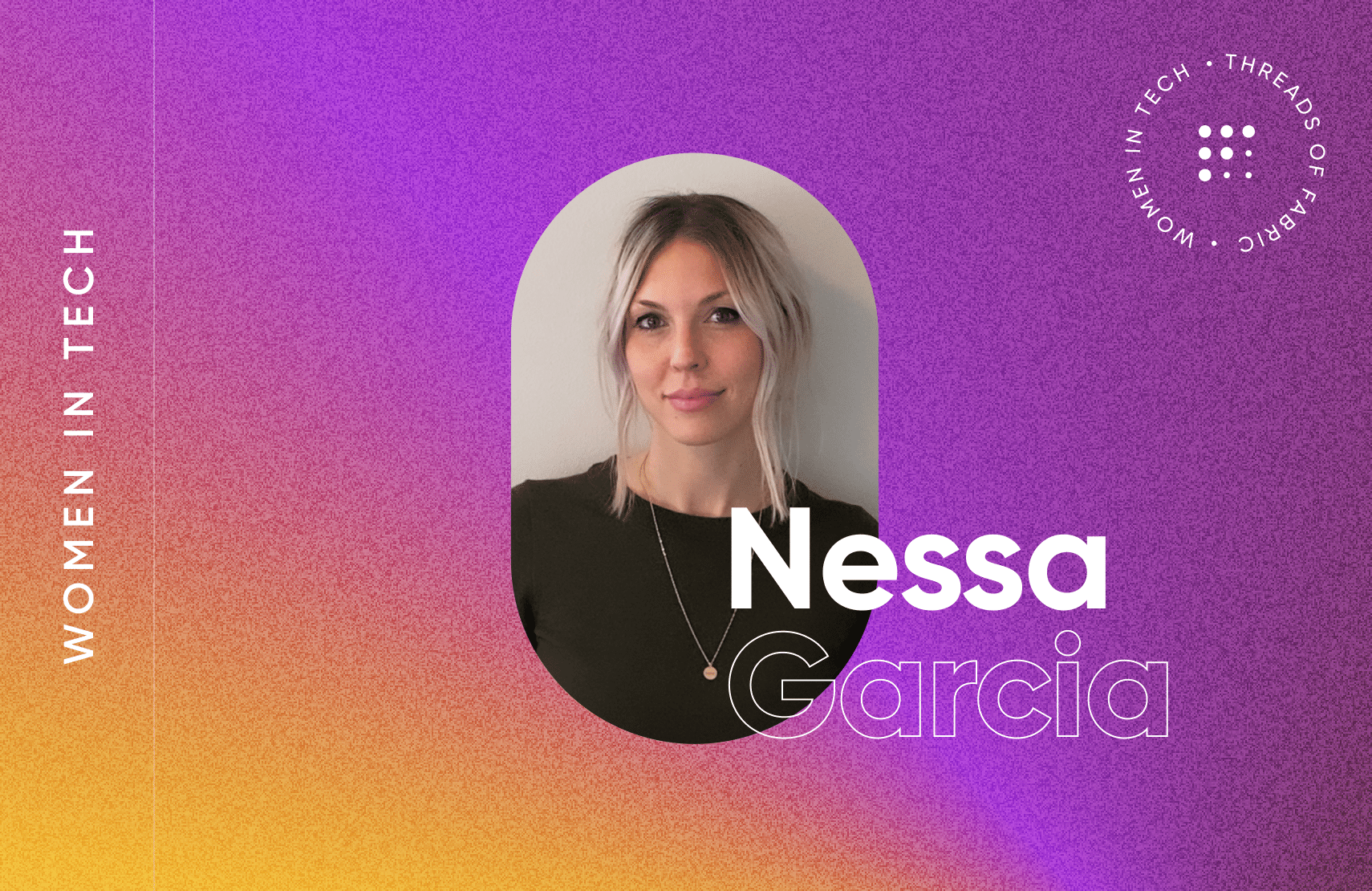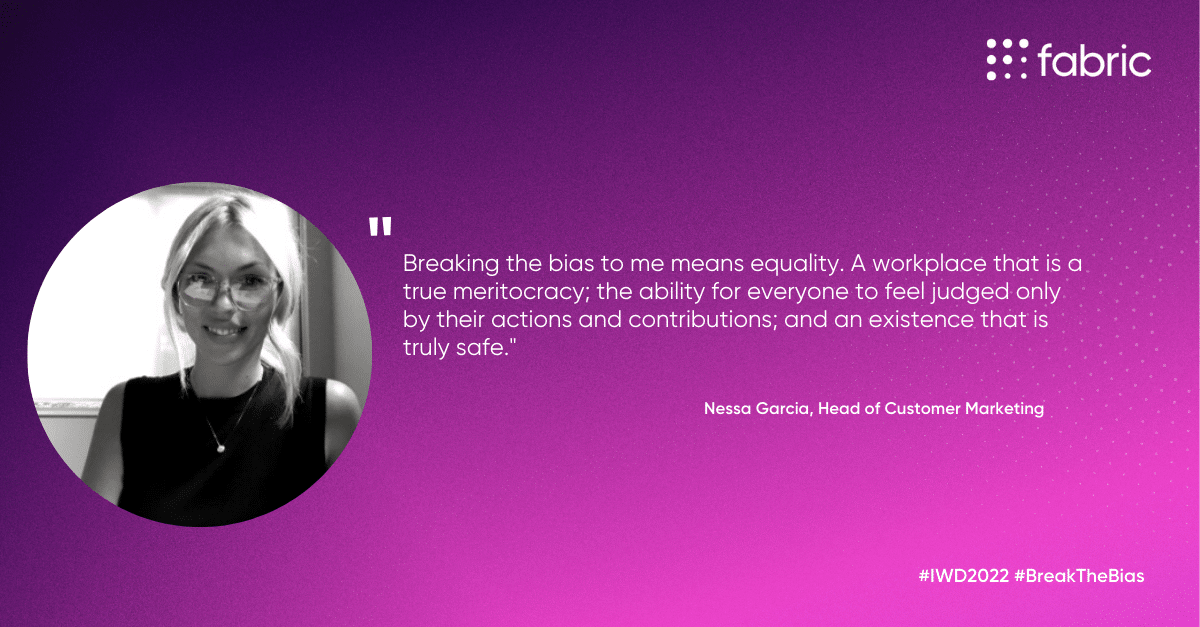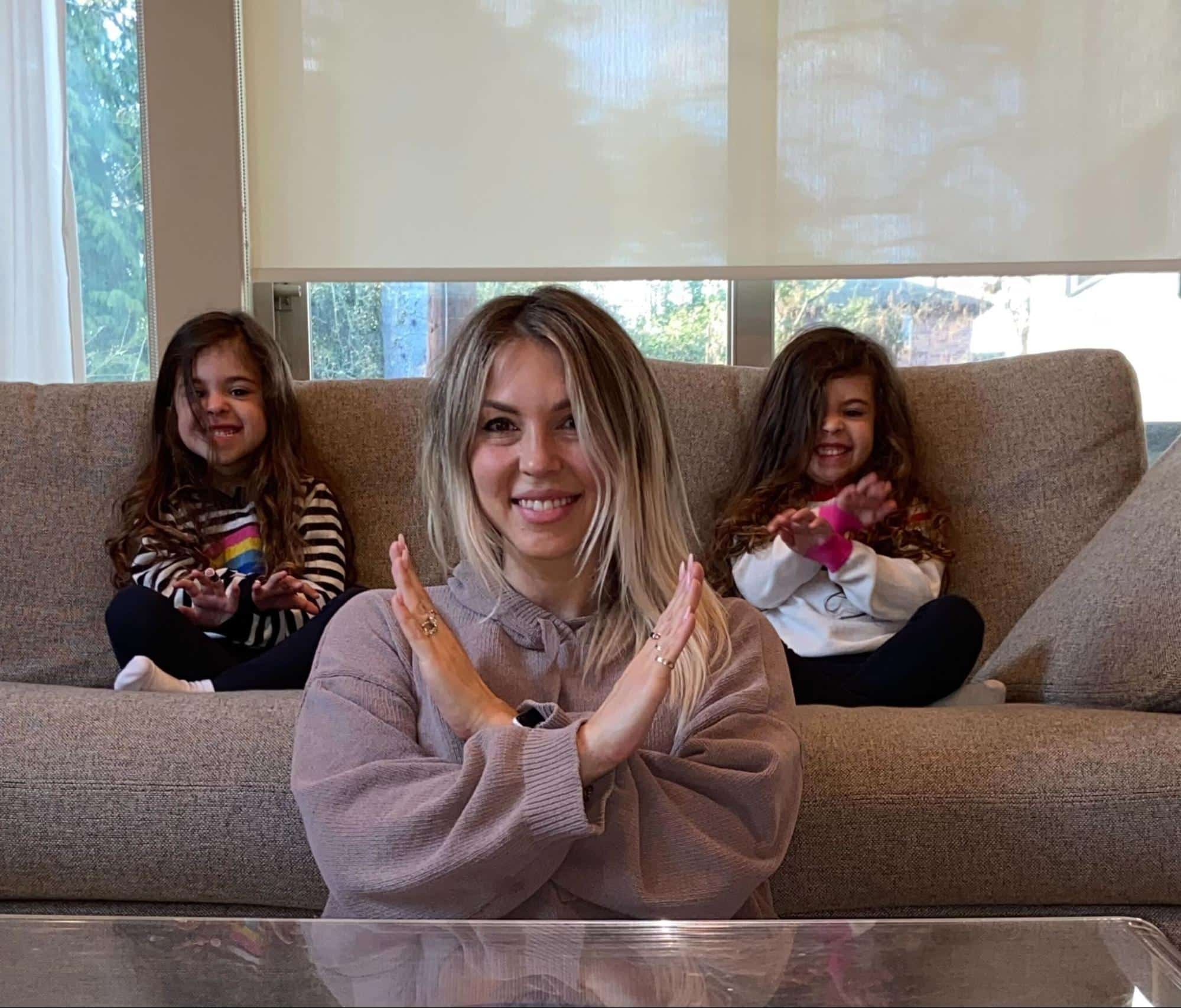Nessa Garcia: Balancing Motherhood and a Career at fabric

Nessa has worked in e-commerce for twelve years, most notably at Groupon and Staples before joining fabric.
Faisal Masud, the CEO of fabric, hired Nessa and helped her grow into her roles at fabric.
At fabric Nessa feels supported in her commitment to her family and career development.
Nessa advocates for gender equity, because it will make the company, its product, and market strategy stronger.
In this employee profile for Threads of fabric, our Director of Customer Marketing, Nessa Garcia, shares her story about setting work-life balance being a married mom of two young daughters while growing her career. She also shares how male teammates who actively address a situation they deem problematic are ways to reinforce women’s ability to thrive with dignity in the workplace.
Nessa Garcia began working at fabric one and a half years ago as the head of customer success after twelve years of working in e-commerce. Years ago, she met Faisal Masud, CEO of fabric, at Groupon and also worked with him at Staples. When she was offered a position at fabric, she jumped at the chance, while also making it clear the importance of having a work-life balance. Now she works in customer marketing and credits fabric for being accommodating to her commitment to her family.
Nessa knew that fabric’s leadership was mature—most of its leaders have families, as well as depth of experience in their fields. “I love the pace of startups,” she said, “but I also have a whole other life.” Nessa has twins, and she’s committed to being a big part of their lives as they grow up. “Being a parent and working here has felt so supportive. fabric has been accommodating. I think it’s a win for everyone, where I can contribute to fabric’s goals, and be able to be an active parent. I believe companies must be flexible like this to help us attract great talent that has a lot to give.” fabric understands the push and pull of work lives, particularly working mothers who have a lot to offer.
Nessa’s passion for gender equity is palpable. Early on in her career, she was often given negative feedback, both outright and subtly, about her direct communication style.
When asked about how men can work to interrupt bias, she mentions Faisal Masud, CEO of fabric: “He was honest with me about my strengths and weaknesses, mentored me, and helped me grow within the roles I’ve had at fabric.” One of the values we have at fabric is earning trust, and Faisal has been able to exemplify that for me by his ability to show appreciation for my experiences and perspectives to empower my success.
She also mentions Terrance Bouldin-Johnson, who, early in her career, shared his salary with her so she could advocate for her own fair pay. Men need to advocate for women, she says. For example, if a woman is being constantly interrupted, she mentions that men can take an active role to remove themselves from being a bystander in the situation and call out the problematic behavior so she can speak.
“The reality is.” Nessa says, “that for a woman to constantly stand up for herself, to say ‘you interrupted me’, wouldn’t always be received well, but when a man can step in and be an ally, the situation is deflected from a woman as being the problem, and she is able to be heard and feel valued. Then being an upstander becomes part of the culture.”
Men, she said, also need to “take an active position in hiring people with different leadership styles and be aware of how bias is unconscious instead of falling into the trap of hiring people who are the same as you.” Making space for women means they can bring something new to the table. “Our products are for a variety of users, many of whom are women. We need women creators and female leadership as we build, market, and engage with those products.”
“The women who work here are strategic and very tactical. We’re a young, fast-growing company, but we are helmed by folks who have been in this industry for a long time. There is this ability to scrappily get things done. The women just roll up their shirtsleeves and hands-on get it done. There’s no ego. Women just do that in their lives. I’m wearing seventeen hats at once. I’m taking a call, ordering groceries, taking care of my twins, and I feel like the most efficient version of myself I’ve ever been. I think women bring that to the table. It’s incredible to watch.”
An inspiration for Nessa at fabric is Karen Brewer. “She has an incredible background and leads with such positivity, which is so unique.” According to Nessa, Karen genuinely embodies fabric’s values, first by seeking to understand before being understood. She starts every weekly meeting with an ice-breaker, making sure that everyone in the room feels heard and seen.
Nessa is especially impressed with Brewer’s ability to “keep a pulse on everything that’s happening” instead of being narrowly focused. “I think my background was only tactical with some strategic elements so I am learning to flip the script and operate more strategically. She has a top-level understanding of all the moving parts of fabric.”
Women, Nessa says, have a knack for seeing the big picture, which is valuable at a startup like fabric that “has always set out to democratize e-commerce and was developed by folks on the buying end. The mission has been to provide a level playing field, so I think thematically it really makes sense. Because to advance more women in leadership and specifically at fabric is only going to make our products stronger, our go-to-market strategy stronger, and our recruiting stronger. It’s inherent to how we think about what we’re doing.”
It’s clear that Nessa has confidence in what she has to offer. Part of that is because she’s felt so supported at fabric. “There’s a lot expected of me, but if I need to pick up my kids at 3 pm one day a week and take them to their ballet class, then I know that’s not going to be a problem.” She also has the opportunity for coaching and feedback, which she says has been invaluable.
When asked for one piece of advice she’d give to women coming into tech, Nessa said, “Nobody really knows what they’re doing so it’s okay to fail and fail upwards. Don’t think that you know less, because you have a lot to offer.”


People advocate and writer @ fabric. Published in Vox, Allure, and Lady Science. Creator of FIRES and Socially Awkward.

